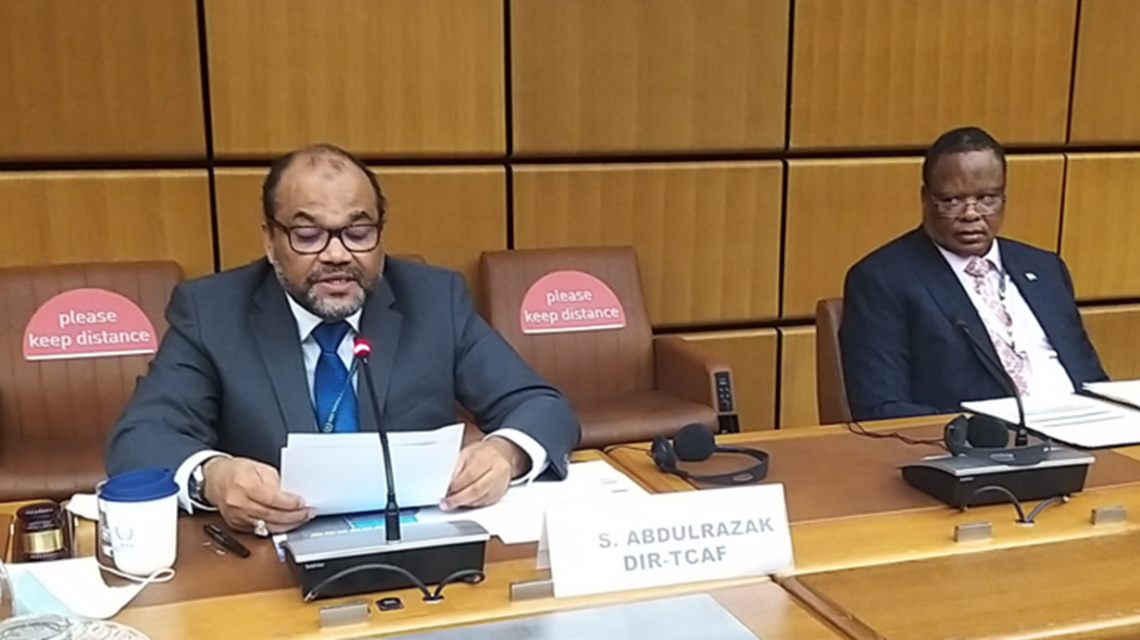Members of the African Regional Cooperative Agreement for Research, Development and Training related to Nuclear Science and Technology (AFRA) held their 31st Annual Technical Working Group Meeting virtually in July to support the implementation of the technical cooperation (TC) programme in Africa.
Officially opened by Éléonore Yayi Ladékan, Benin’s Minister of Higher Education, the event was held to review progress made by the TC programme in Africa in recent years and to build consensus for both programme and policy-related recommendations which emerged during the two-day meeting.
The meeting was co-chaired by both AFRA’s current and incoming Chairs, Zizamele Mbambo of South Africa and Pascal Houngnandan of Benin, respectively, and attended by 81 participants of the AFRA Committee, 37 National Coordinators, the Executive Secretary of the African Commission on Nuclear Energy (AFCONE) and representatives of the Vienna-based Group of African Ambassadors to the IAEA and IAEA staff.
Shaukat Abdulrazak, Director of TC’s Africa Division, speaking on behalf of the IAEA Deputy Director General and Head of the Department of Technical Cooperation, encouraged the forum to leverage the IAEA’s expertise in the fight against the virus that causes COVID-19. “The IAEA is proud to be contributing to international efforts to address COVID-19. We are building national capacities to use one of the most accurate laboratory methods for detecting, tracking and studying the coronavirus.”






